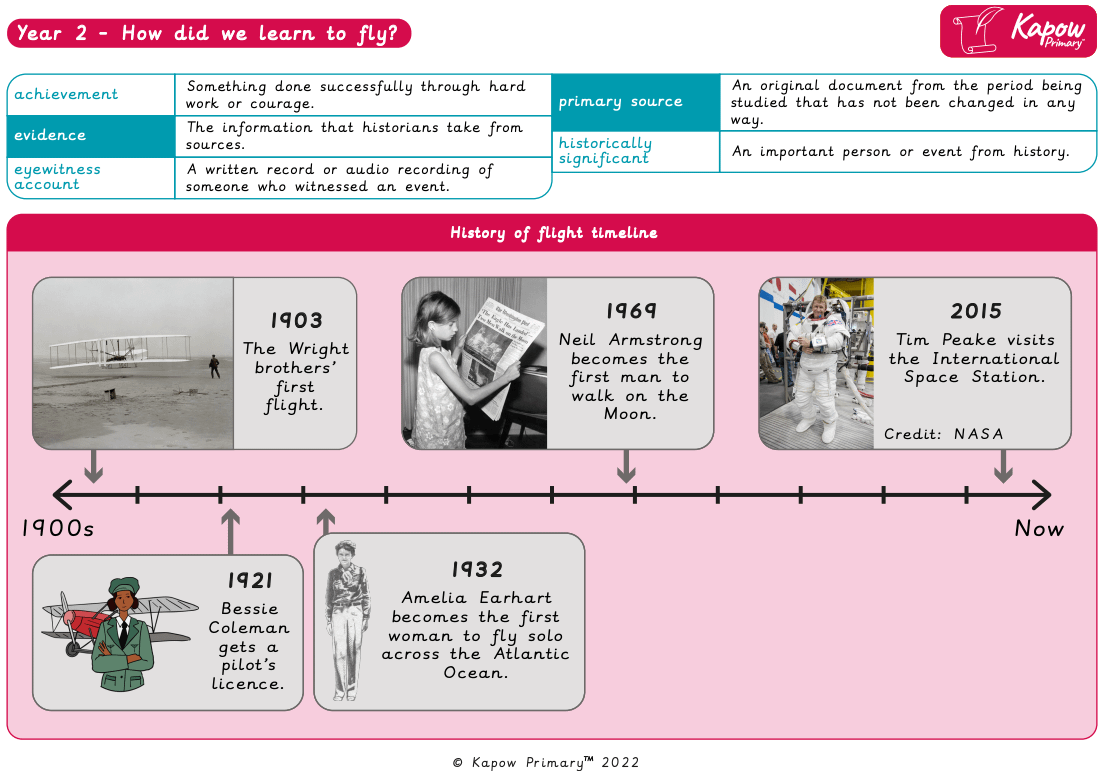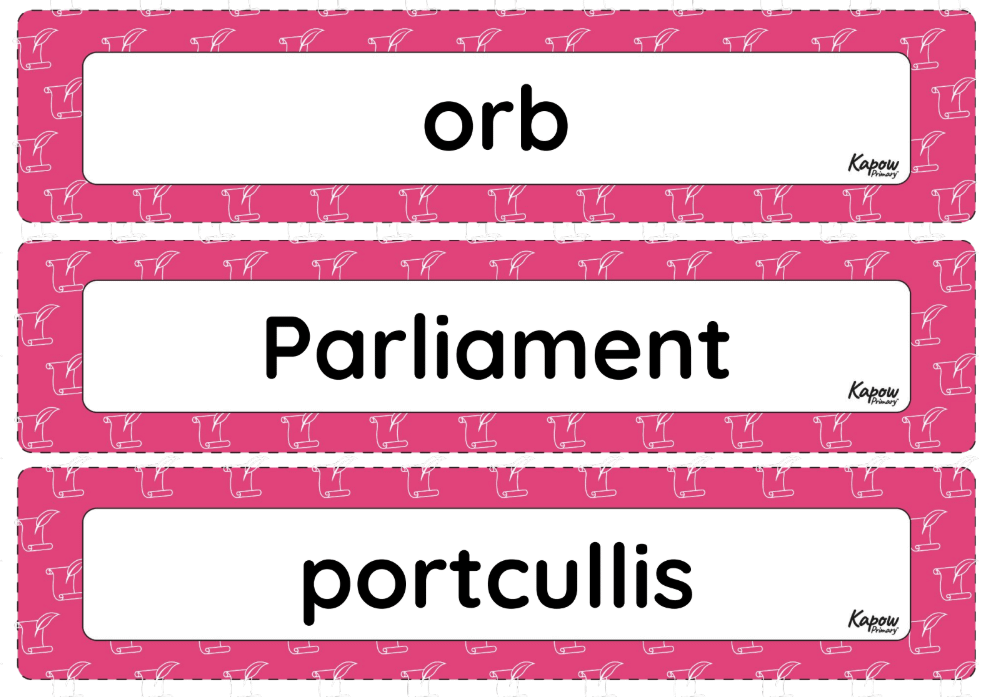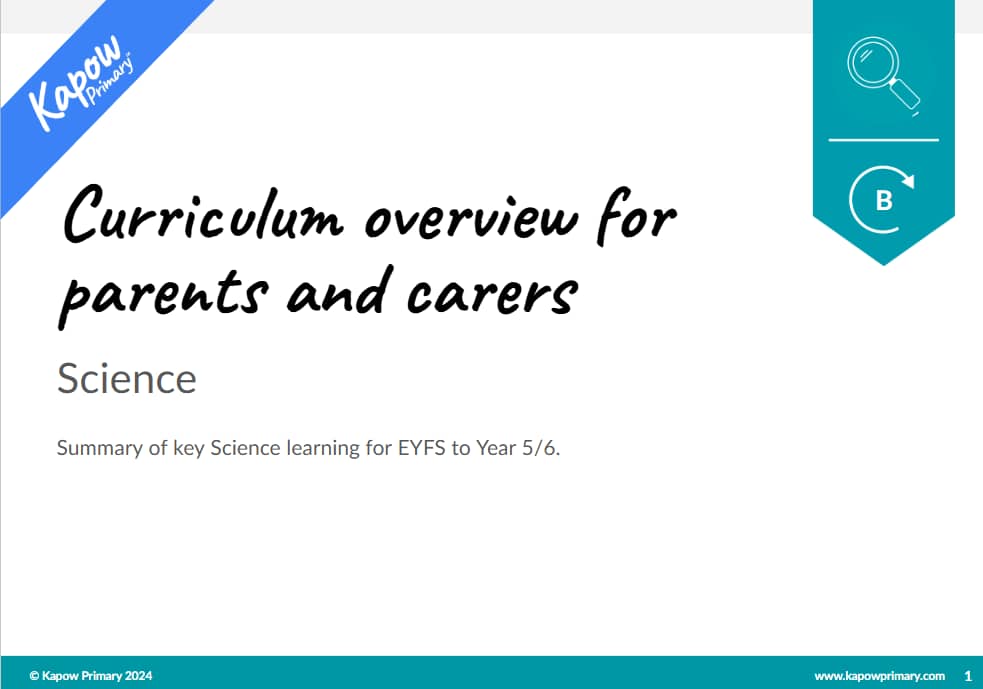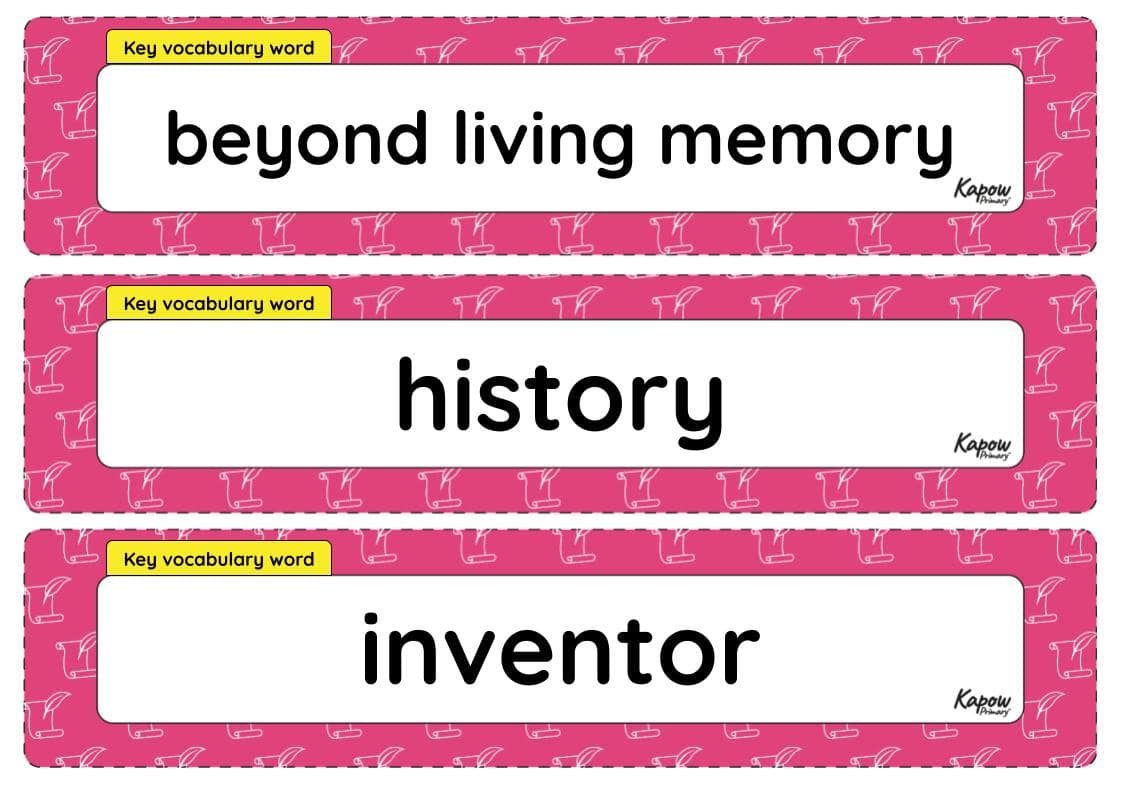
This unit vocabulary display includes keywords from the unit History, Year 2, How did we learn to fly? and additional unit-specific words that may be helpful in a display.
Key vocabulary is clearly labelled on the display, highlighting essential words that the pupils are expected to retain and reuse in future units. Understanding these words enhances comprehension of the subject and supports understanding of key knowledge and skills.
See the full History: Progression of key vocabulary.
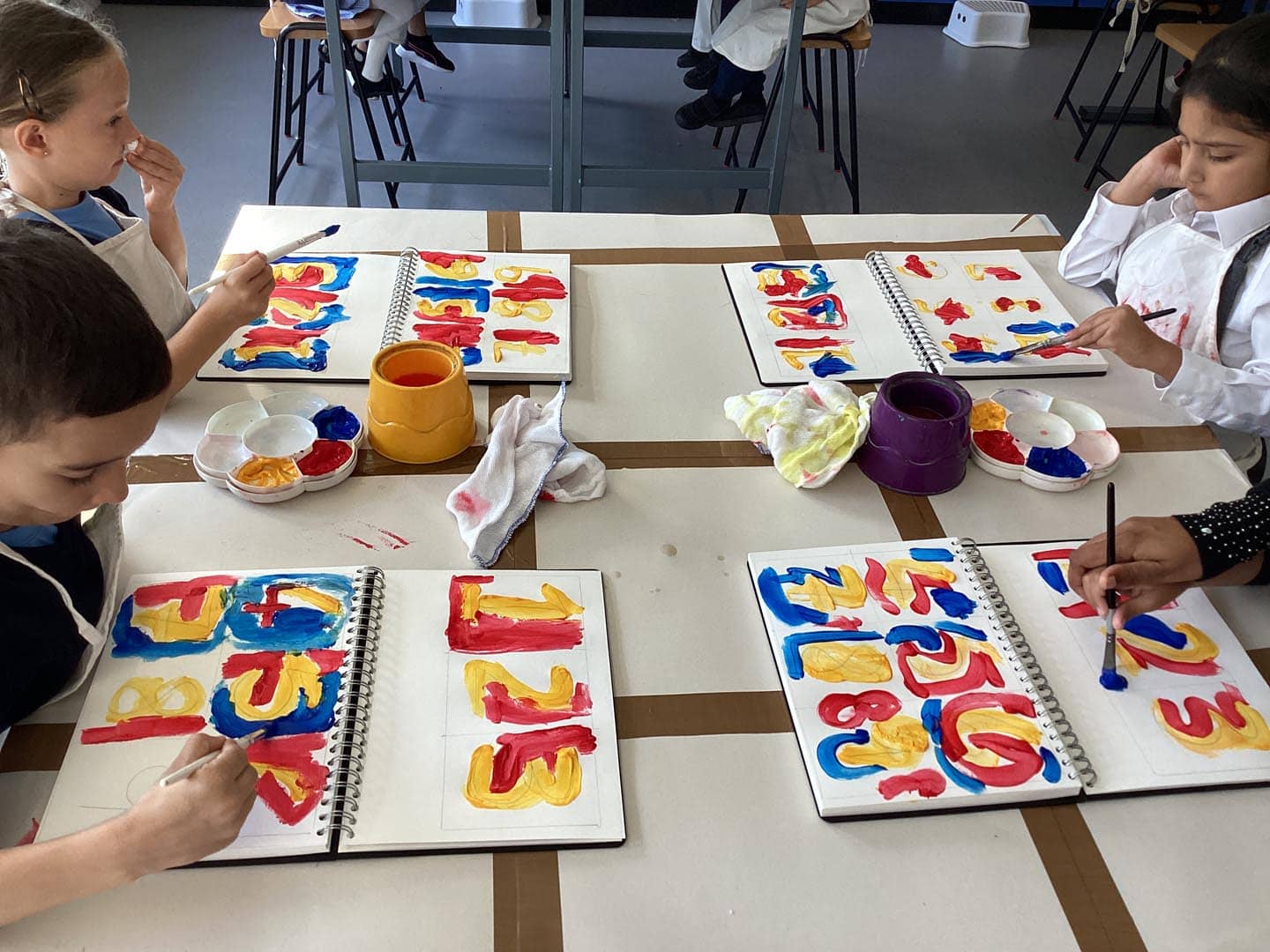
Discover how Montem Academy has transformed its curriculum with Kapow Primary’s Art and design scheme of work.
Staff share how it improved progression, inspired creativity in pupils, and boosted teacher confidence in delivering engaging art lessons. Watch to see the impact it’s had on the school!
You can be the next success story – Start your FREE trial today!
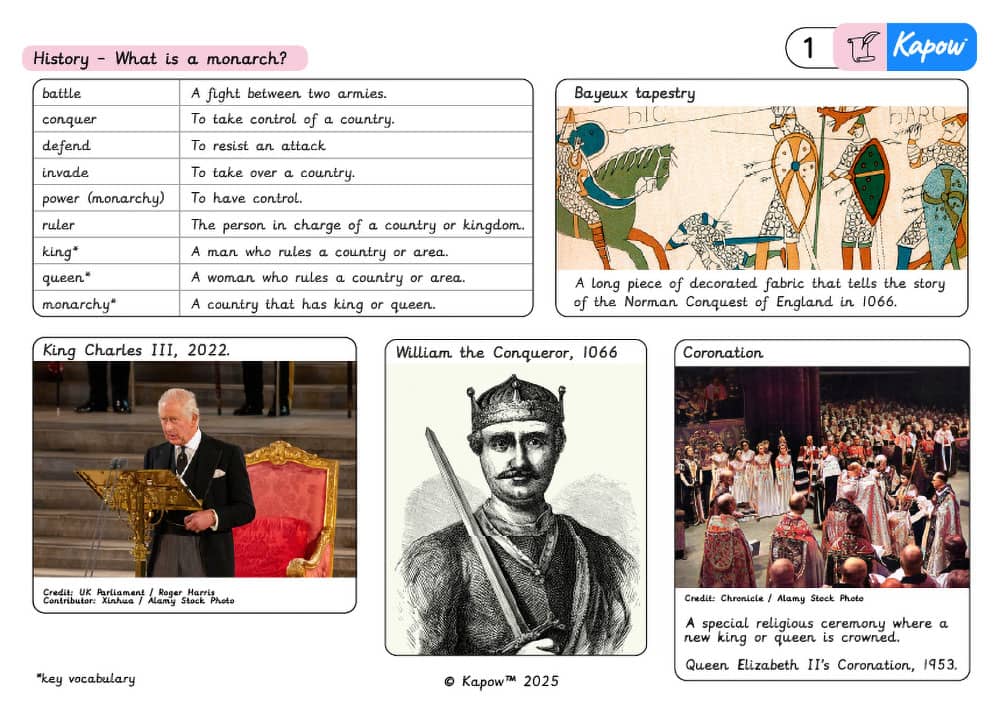
A Knowledge organiser that captures the essential knowledge and skills learnt throughout the mixed-age unit History, Y1/2, What is a monarch?
This History resource is designed to support children as they explore monarchy now and in the past. It highlights key vocabulary, features significant monarchs and includes images to show how castles changed over time. It is perfect for consolidating essential knowledge.

Kapow Primary’s Music specialists, Kirsty England and Laura Forster-Rea, share practical advice to help you lead Music with confidence across your school.
In this recording, you’ll learn how to:
-
Raise the profile of Music and celebrate it across your school community
-
Support colleagues to deliver engaging Music lessons
-
Use manageable and meaningful assessment strategies
-
Develop your own skills and CPD opportunities for your team

This Religion and Worldviews video for Key stage 1 pupils tells the story of Guru Nanak and the Cobra. It supports learning from Lesson 3 of the unit ‘How do we know some people have a special connection to God?’ and helps children explore how some stories suggest a person might be considered special.
Through simple narration and visuals, children see how a moment in Guru Nanak’s childhood is remembered by some Sikh people as a sign of his special connection to God. The video encourages pupils to think about how actions, symbols and surprising events in religious stories can carry meaning.
Religion and Worldviews, Year 2, How do we know some people feel a special connection to a god?
Religion and Worldviews, Year 1/2, How do we know some people feel a special connection to a god?
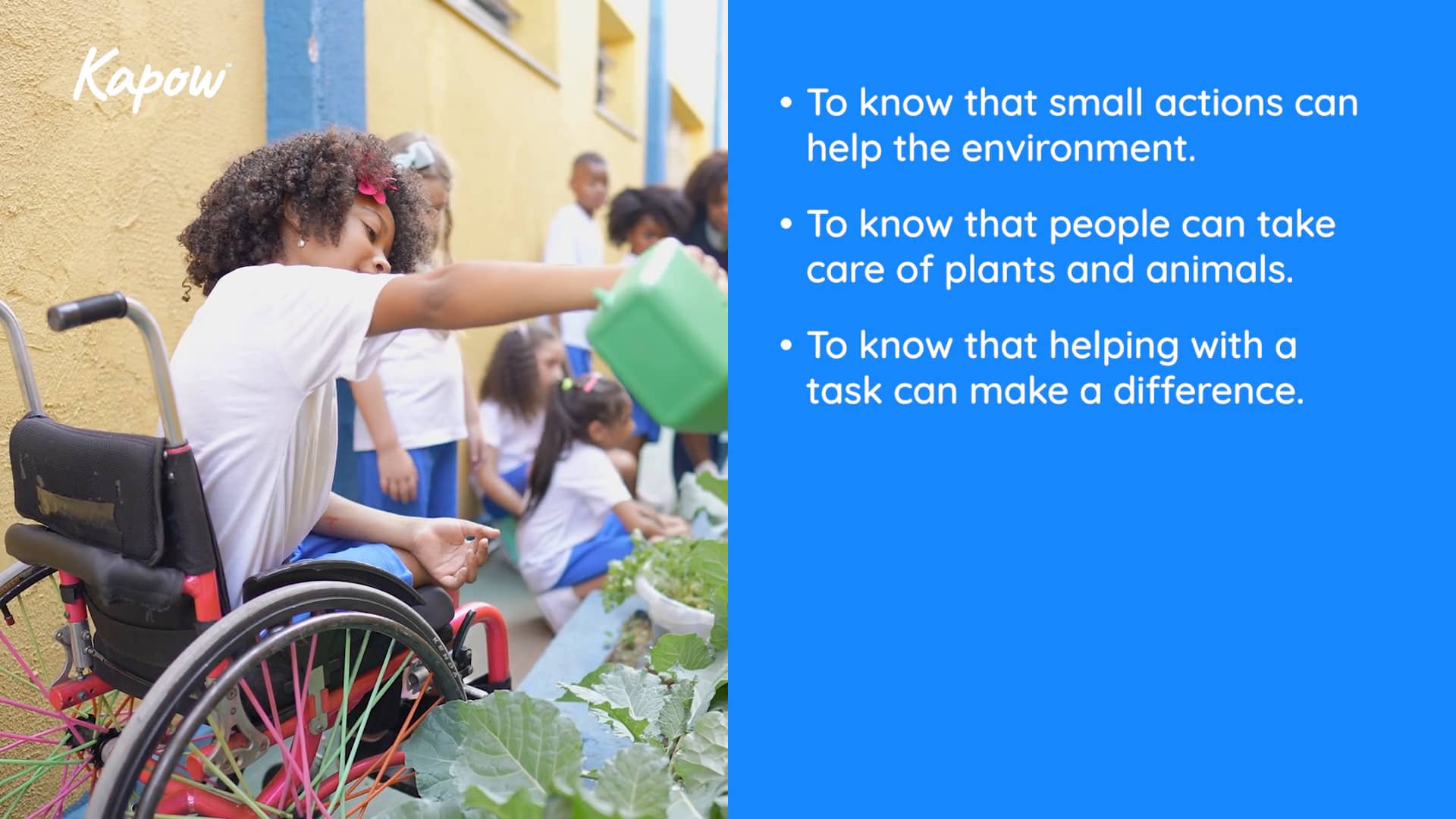
Teachers are supported in embedding sustainability across year groups, using progressive lessons and hands-on activities to build children’s understanding and practical action.


